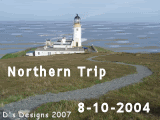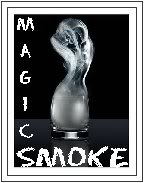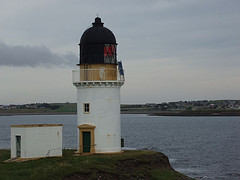As long standing readers know, during my stay in Lewis, I have taken on board some aspects of the island's history. In the early hours of New Year's Day 1919, a boat, carrying 300 islanders returning from the First World War, was on its way from Kyle of Lochalsh to Stornoway. On the approach to Stornoway, it struck rocks on the Beasts of Holm, a small reef. 205 drowned, 75 survived. The exact circumstances of the grounding have never been cleared up. The naval reservists on board could, to a man, have taken the boat, called the Iolaire into port. An inquiry was launched, but no conclusions were drawn.
Earlier this year, I was given a list of names, and I gathered pictures of the men who died and of the survivors. One of my sources, a man from Aberdeen, is scathing (putting it mildly) about the attitude of the British authorities towards their conscripts, and towards those who perished on the Iolaire. I think it is understandable, if I give you these two quotes.
Prior to the inquiry, a number of national papers had an accusation to the effect that "the men drowned because they were Gaelic speakers who could not understand orders given in English". This false allegation was quickly dropped before the inquiry proper started. It was pointed out that many had been at sea for years, and non-commissioned officers &c during the war. The allegation infuriated many of the islanders and their shipmates who had served at sea. This letter was printed in the Glasgow Herald, a major Scottish newspaper, on 11 January 1919,
Sir, I should like to take exception to a remark made in the account given by a
correspondent, of the above sad disaster in the "Herald" of the 6 inst. He says
that probably a great deal of confusion was caused by the fact that orders were
given in English at the critical moment instead of in Gaelic, which the men
would have understood better. I am well acquainted with the people of Lewis in
general, and have sailed with their seamen for a long number of years, and never
yet met a Lewisman that could not speak and understand English equally as well
as Gaelic. In the majority of cases, when away for long periods, as sailors are,
they never speak anything but English. So I do not think it would make any
difference at all whether orders were given in Gaelic or English. It seems
apparent that the ship's boats could not withstand the storm and heavy sea which
was raging at the time, and it was a case of "every man for himself." By the
accounts given the Arnish Light was quite visible for a long distance out at
sea, which was a sufficient guide for bringing the vessel into Stornoway
Harbour, combined with the Beacon Light. If, on the other hand, the lights were
obscured for any length of time, why was the vessel not slowed or stopped and
navigated with caution when such a number of precious lives were involved? I am
almost certain that the majority of these poor seamen, who were natives of
Lewis, were quite capable of taking the vessel into the harbour had they been in
a position to do so., and I am pleased that the Lewis people are demanding a
public inquiry which I hope, will help to clear up the mist. - ---- I am,
etc.. ONE WELL ACQUAINTED WITH THE COAST.
Wednesday, 14 June 2006
Subscribe to:
Post Comments (Atom)












Guido that is very interesting thankyou for sharing ......Jan xx
ReplyDeletequite intersting! uh,,because they could not understand Mother English!
ReplyDeletehuh???
:(I don't think so!) thanks
natalie